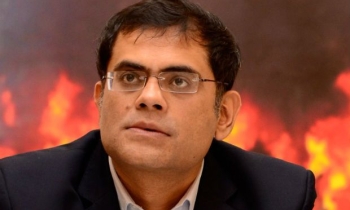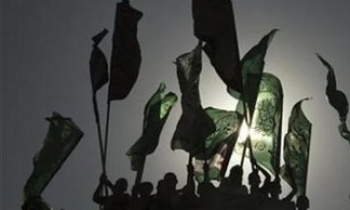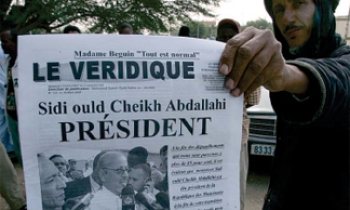Britain's security agencies and police would be given unprecedented and legally binding powers to ban the media from reporting matters of national security, the Independent newspaper has reported.
The Intelligence and Security Committee, the parliamentary watchdog of the intelligence and security agencies which has a cross-party membership from both Houses, wants to press ministers to introduce a legislation that would prevent news outlets from reporting stories deemed by the government to be against the interests of national security, the newspaper reported.
Some details from the Independent exclusive: [Link]
The committee also wants to censor reporting of police operations that are deemed to have implications for national security. The ISC is to recommend in its next report, out at the end of the year, that a commission be set up to look into its plans, according to senior Whitehall sources.
The ISC holds huge clout within Whitehall. It receives secret briefings from MI5, MI6 and GCHQ and is highly influential in forming government policy. Kim Howells, a respected former Foreign Office minister, was recently appointed its chairman. Under the existing voluntary code of conduct, known as the DA-Notice system, the Government can request that the media does not report a story. However, the committee's members are particularly worried about leaks, which, they believe, could derail investigations and the reporting of which needs to be banned by legislation.
The committee has focused on one particular case to highlight its concern: an Islamist plot to kidnap and murder a British serviceman in 2007, during which reporters were tipped off about the imminent arrest of suspects in Birmingham, a security operation known as "Gamble". The staff in the office of the then home secretary, John Reid, and the local police were among those accused of being responsible – charges they denied. An investigation by Scotland Yard failed to find the source of the leak.
The then director general of MI5, Dame Eliza Manningham-Buller, was among those who complained to the ISC. "We were very angry, but it is not clear who we should be angry with, that most of the story of the arrests in Op Gamble were in the media very, very fast ... So the case was potentially jeopardised by the exposure of what the story was. My officers and the police were jeopardised by them being on operations when the story broke. The strategy of the police for interrogating those arrested was blown out of the water, and my staff felt pretty depressed ... that this has happened."
The paper also has some backgrounder on DA-notices:
The D-Notice system was set up in 1912 when the War Office (the Ministry of Defence in its previous incarnation) began issuing censorship orders to newspapers on stories involving national security. In 1993 it became known as a DA-Notice with four senior civil servants, with an eminent military figure as secretary, and 13 members nominated by the media to form the Defence Press and Broadcasting Advisory Committee.
Contrary to popular conception DA-Notices are a request and not legally enforceable. Civil servants fear making the agreement legally binding would lead to hostility from the media. There would be apprehension among journalists about new restrictions, as the committee has in recent times been robust in resisting pressure from the Government to send DA-Notices if it thinks the motives are political. At present most DA-Notices are issued regarding military missions, anti-terrorist operations at home and espionage.
The paper, in a subsequent editorial, said, "As a newspaper, we could be expected to oppose more restrictions on media reporting. But we also understand the need, in particular cases, to be mindful of national security. What we do not see—at least as yet—is any evidence that the DA-Notice system is no longer working. It may seem a very British and slightly untidy system, but it leaves the last word with editors and it stops short of state censorship, which is what any statutory system would amount to."










